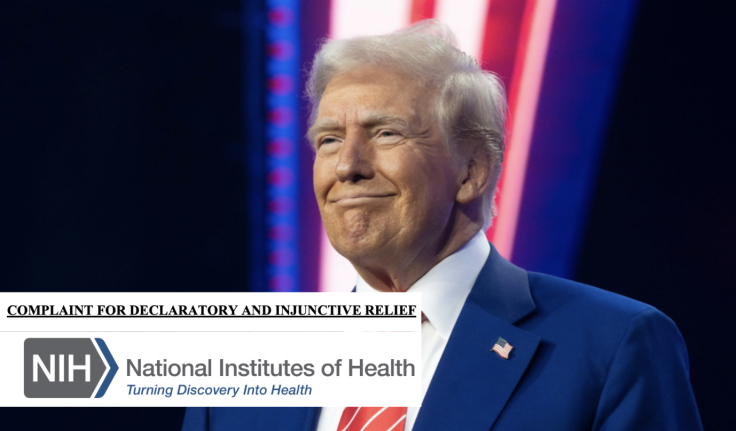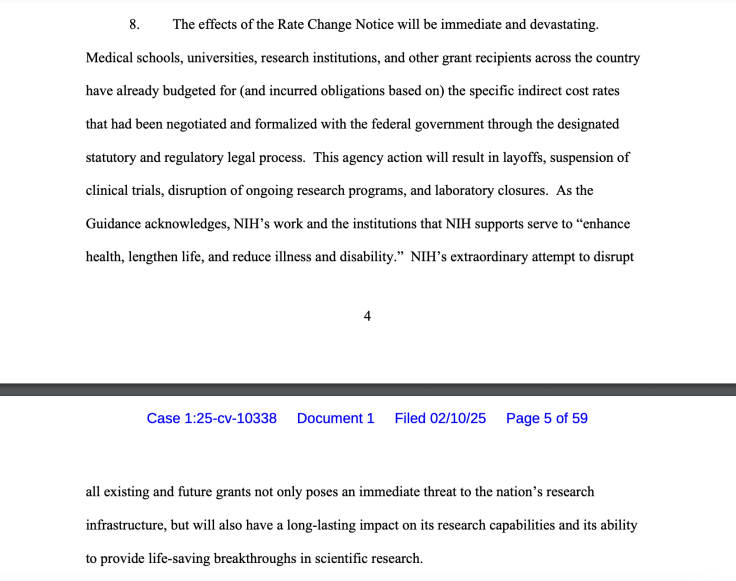
Twenty-two states sued the Trump administration Monday, challenging abrupt National Institutes of Health (NIH) funding cuts they say will "devastate critical public health research" nationwide.
"Donald Trump is defunding cancer research. He is defunding treatment for heart disease. He wants to defund research into autism, Alzheimer's, and preventable newborn deaths. He wants to make us all sicker, and we cannot let him," Connecticut Attorney General William Tong said.
"The coalition's lawsuit seeks to prevent that reckless and illegal conduct," Maine Attorney General Aaron Frey added.
The lawsuit, filed in Massachusetts, argues the cuts violate congressional appropriations law.
The NIH announced Friday that it will cut indirect research cost reimbursements to 15%, a sharp drop from previous institution-specific rates. These funds help cover salaries, lab maintenance, and infrastructure. With the cuts starting Monday, institutions had no time to adjust.
The NIH reported that indirect costs accounted for $9 billion of its $35 billion research budget last year. While the administration claims the move will save the government $4 billion annually, it remains unclear if those savings will be redirected to research efforts.
Last year, $9B of the $35B that the National Institutes of Health (NIH) granted for research was used for administrative overhead, what is known as “indirect costs.” Today, NIH lowered the maximum indirect cost rate research institutions can charge the government to 15%, above… pic.twitter.com/FSUYpEGKsr
— NIH (@NIH) February 7, 2025
In the lawsuit, state attorneys general argue that the NIH lacks the authority to impose such sweeping changes without congressional approval.
"NIH's extraordinary attempt to disrupt all existing and future grants not only poses an immediate threat to the nation's research infrastructure, but will also have a long-lasting impact on its research capabilities and its ability to provide life-saving breakthroughs in scientific research," the attorneys general wrote.

The lawsuit is being co-led by the attorneys general of Connecticut, Massachusetts, Illinois, and Michigan.
"Every American has benefited from NIH-supported medical research conducted at medical schools, academic health systems, and teaching hospitals nationwide. Every American will be harmed by the undermining of this long-standing partnership between academic institutions and the federal government," said David J. Skorton, president of the Association of American Medical Colleges, in a joint statement with Chief Scientific Officer Elena Fuentes-Afflick.
© 2025 Latin Times. All rights reserved. Do not reproduce without permission.




